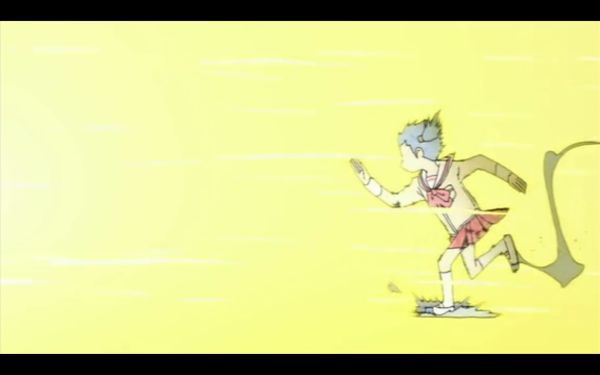
In the near future, we will have to run like a flash just to stand still. Or so it seems.
We should have acted. It was already here. But nobody wanted to believe, believe it even existed.
The technological singularity has begun to pull us in. Like a whirlpool, spinning faster and faster, gradually it becomes unavoidable. The speed at which changes change is changing faster. As Einstein said, compound interest is the strongest force in the universe. Meaning, when you keep adding to something and then keep adding to the addition to the addition, there is no limit to how far you can go, and it can only go faster and faster. And it goes faster and faster at an ever faster rate.
In the year 2000, I wrote the entry “Datapad 2010“, predicting that in 2010, it would be common to have handheld devices doing many of the things we in 2000 did with computers, but anywhere, at any time. In reality, 2010 was indeed the year of the iPad, but the iPhone (2007) was at least as close to what I had predicted. TV and movie on the datapad I predicted would happen  “perhaps 2020”. It is already here. Not quite impressive yet, a bit of a “because we can” really. But we can. I can rent movies on my Samsung Galaxy (also from 2010). And I can easily afford the wireless bandwidth to do so, at least in moderation.
I was 3 years wrong with the datapad, 10 years with the movie streaming. Admittedly these were more like first mainstream appearance, and it takes a bit for them to spread to most of the populace. Still, iPads and Tablets are pretty mainstream now in the old developed world. Not just for geeks or the rich. Still, look at these numbers again. What I predicted for 2010 came in 2007, but what I predicted for 2020 came in 2010. I am not the only one who make these mistakes. The acceleration of the accelerating change is accelerating. Time is compressed, more the further ahead we look.
In the year 2000, most of you did not even know what I was talking about with the “datapad”, or why anyone other than sci-fi geeks would have any interest in them. Today, there are also many things you don’t even think about, that I think about but don’t grasp fully.
This also affects the world economy, which I used to write about in great detail. Now, I cannot write fast enough – by the time someone stumbles on my website, it will likely have happened already.
The crisis in the Euro zone. The collapse of the dollar. Will they happen in a year, or in a week? I cannot say. The future is becoming hazy. Probably not because of tachyons from Antarctica. Probably because a middle-aged man like me has a hard time believing the speed at which things happen, now in the waning years of mankind as we have known it.
The boss of a large multinational oil company recently mentions that the world is expected to need two-thirds more energy by 2050, or the equivalent of another OPEC in addition to the one we have. Again, my first reaction is “That’s after the singularity, so not something humans should worry about”. More importantly, it is far after Peak Oil, which is now, more or less. New oil is being found here and there, but it is generally more expensive to extract than before. Despite the economic stagnation in the rich world, oil prices have risen again. You cannot simply put the ruler on the current development and say “in 2050 we will be… there!”
I’ve mentioned before that around 2040 we are expected to know millions, probably billions of times more than we know today, and the knowledge will double every day or so. Perhaps most of that knowledge will be the equivalent of  teenager Twitter messages, but it would surprise me if somewhere in those millions of times our current knowledge there isn’t something that will make our current oil companies seem obsolete, our current railroads, our current schools even.
The obvious problem is, we don’t know WHAT. It may already be there, buried in some data file in one of Google’s big computer halls. Something that changes our energy economy as much as the bow changed hunting in the Stone Age, perhaps. But how would we know? When will we find it, if ever, and how? All we know is that we know less and less of what there is to know, because knowledge is covering our world now like water is covering the bottom of the sea. And it is only the beginning. Soon everything will change. Even we.
But for now, we shall have to live with being shortsighted. Because beyond that short sight, everything becomes a blur of movement.
